Two elderly people found burned to death in their home in Italy are among at least 40 people killed as wildfires rage across huge swaths of the Mediterranean.
Countries including Italy, Greece and Algeria are deploying thousands of firefighters to battle the devastating fires, which have been fueled by scorching temperatures and strong winds.
The highest death toll is in Algeria, where wildfires ripped through 11 provinces in the North African nation, killing at least 34 people, state broadcaster EPTV News reported Monday, citing the country’s interior ministry and local groups. Ten of the victims were soldiers, Reuters reported.
More than 8,000 firefighters have been deployed to control the blazes as residents living near forested areas were evacuated, according to EPTV.
The situation now appears to be under control, according to Algeria’s Civil Protection services, which said that it has managed to contain all wildfires, in a statement on Wednesday.
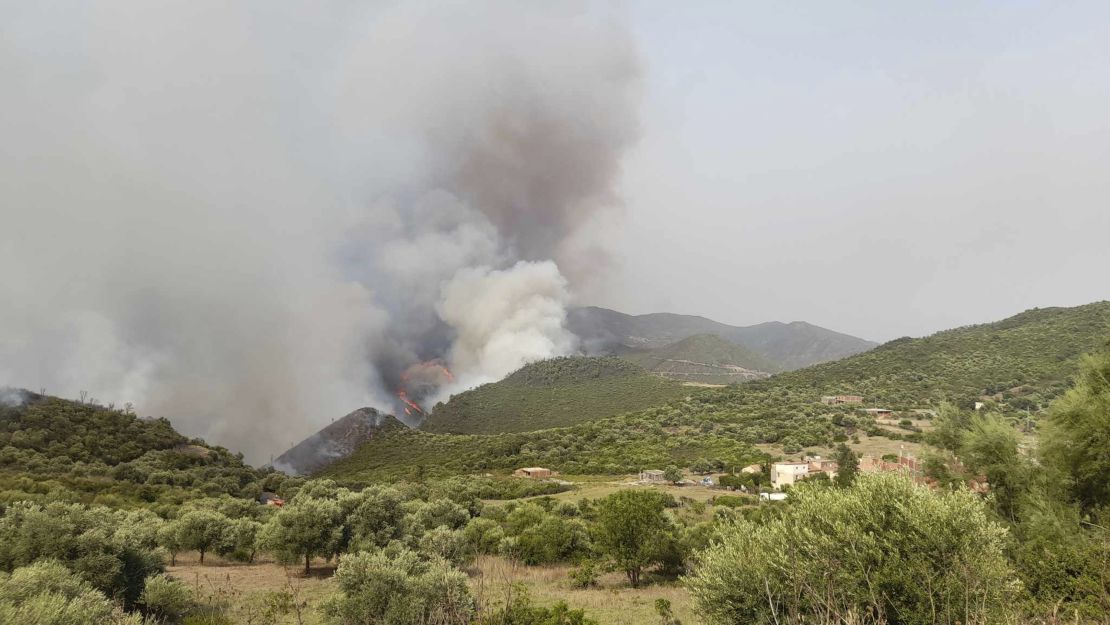
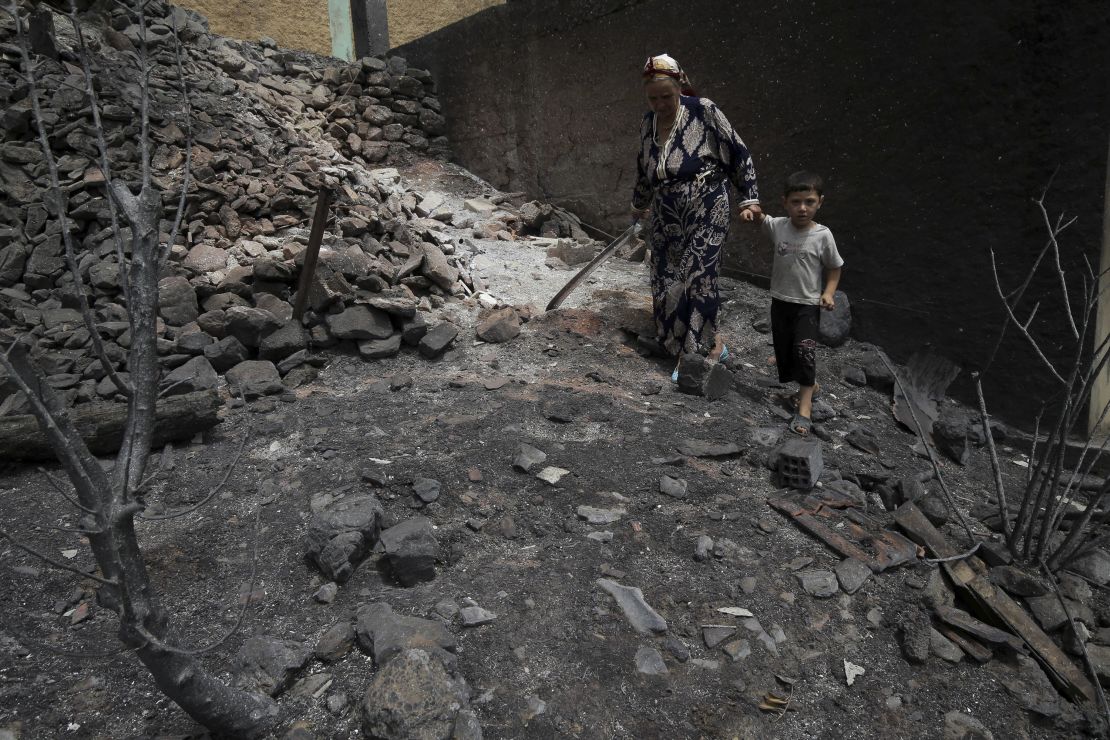
Italy, one of the countries hardest hit by extreme heat in Europe, is battling 10 fires in the south of the country including blazes in Sicily, Calabria, Abruzzo and Puglia, where 2,000 people were evacuated from three hotels on Tuesday evening.
The fires claimed at least four lives on Tuesday, according to Italian news agency ANSA.
A 98-year-old man died as flames reached his home in the coastal city of Reggio Calabria in southern Italy, according to ANSA.
In Palermo in Sicily, two people in their 70s were found burned to death in their home near Palermo and an 88-year-old woman died when an ambulance called for her was blocked by the fires.
In some parts of Sicily, temperatures reached 47.4 Celsius (117.3 Fahrenheit) on Monday, edging close to the European temperature record of 48.8 degrees Celsius, set in 2021.
Italy’s meteorological agency said that temperatures will dip slightly over the coming days in the south before climbing again towards the weekend.
Italian Prime Minister Giorgia Meloni said on Wednesday that the fires and extreme weather disasters are putting the country “to the test.”
She came short of announcing a state of emergency in the country as many regions are demanding, tweeting that the government had “deployed all the means at its disposal.”
Further west, in parts of Portugal and southern Spain, emergency teams struggled to contain wildfires on Wednesday as residents were evacuated from the affected regions.
Outside the Portuguese capital of Lisbon, on Wednesday morning over 500 firefighters remained at the scene of a wildfire that broke out in the Cascais area, according to Portuguese public broadcaster, RTP. Firefighters remained at the scene after the fire was contained.
In the Spanish municipality of Tejeda on Gran Canaria, a forest fire broke out on Tuesday in an area where 200 hectares of land had already burned down, according to Spanish public broadcaster, RTVE.
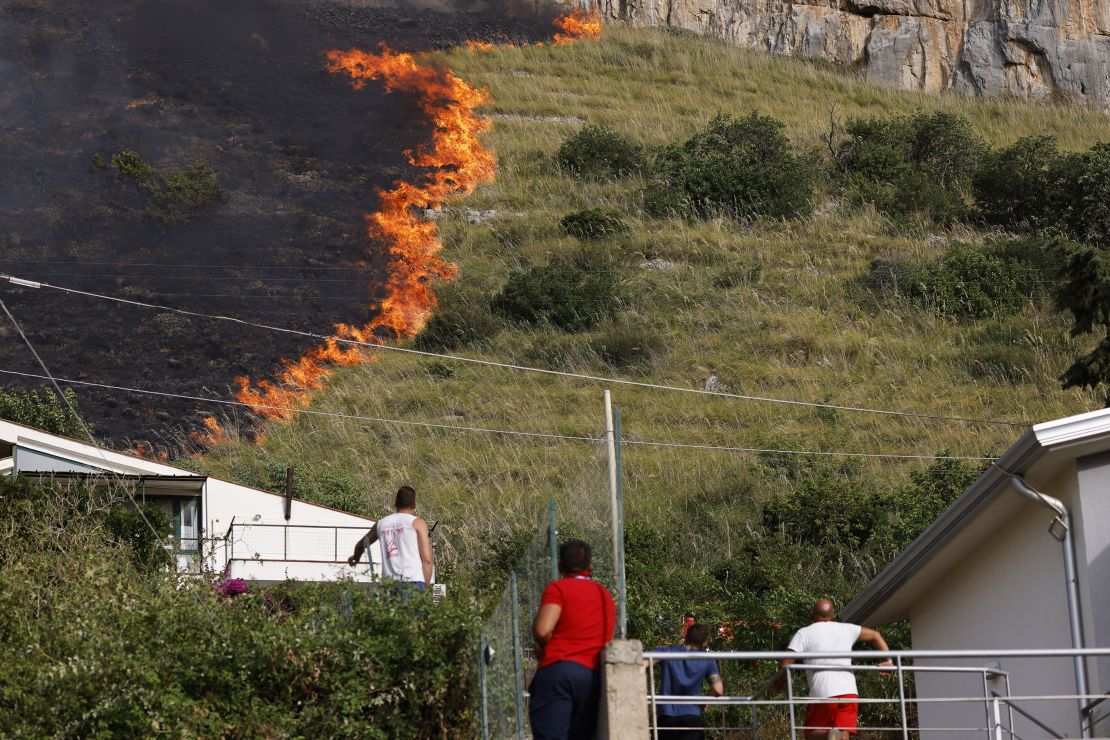
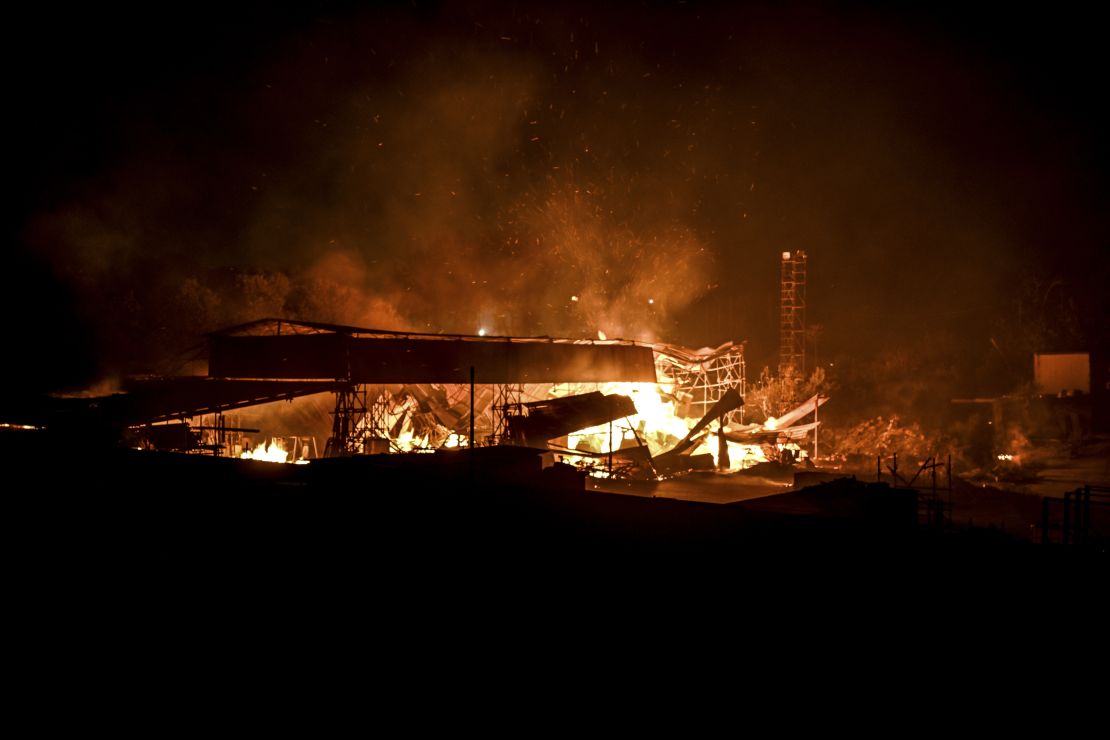
In Greece, the fire service said 61 new wildfires ravaged parts of the country amid sweltering temperatures as high as 46 degrees Celsius (114.8 degrees Fahrenheit).
The country’s fire service said on Wednesday that new blazes prompted evacuation orders in some parts of the cities of Lamia and Volos, after nearly 20,000 people were evacuated from homes and tourist resorts in Rhodes over the weekend.
The carbon emissions from the blazes are the highest in the past two decades, according to the Copernicus Atmosphere Monitoring Service (CAMS). Around 1 megaton of carbon emissions was recorded from July 1 to July 25, CAMS said, adding that the wildfires are expected to affect the air quality in the region.
Maria Feggou, a volunteer with the Hellenic Red Cross fighting the blaze in Rhodes, said that the situation is difficult to describe. “Half of the island is in flames, and it seems uncontrollable,” Feggou told CNN on Tuesday.
In Evia, two pilots aged 27 and 34 died when their aircraft crashed during a firefighting operation over the island, the Greek Air Force said in a statement. Greece’s armed forces announced three days of national mourning.
Greek Prime Minister Kyriakos Mitsotakis said at a government cabinet meeting on Tuesday that the fires were “a tough test” for the country. He warned that “things will probably get worse, not better, with warmer temperatures, more drought, stronger winds.”
The Greek weather agency has warned of rising temperatures in some parts of the country, while the island of Crete has been placed under a state of alarm for extreme risk of fire.
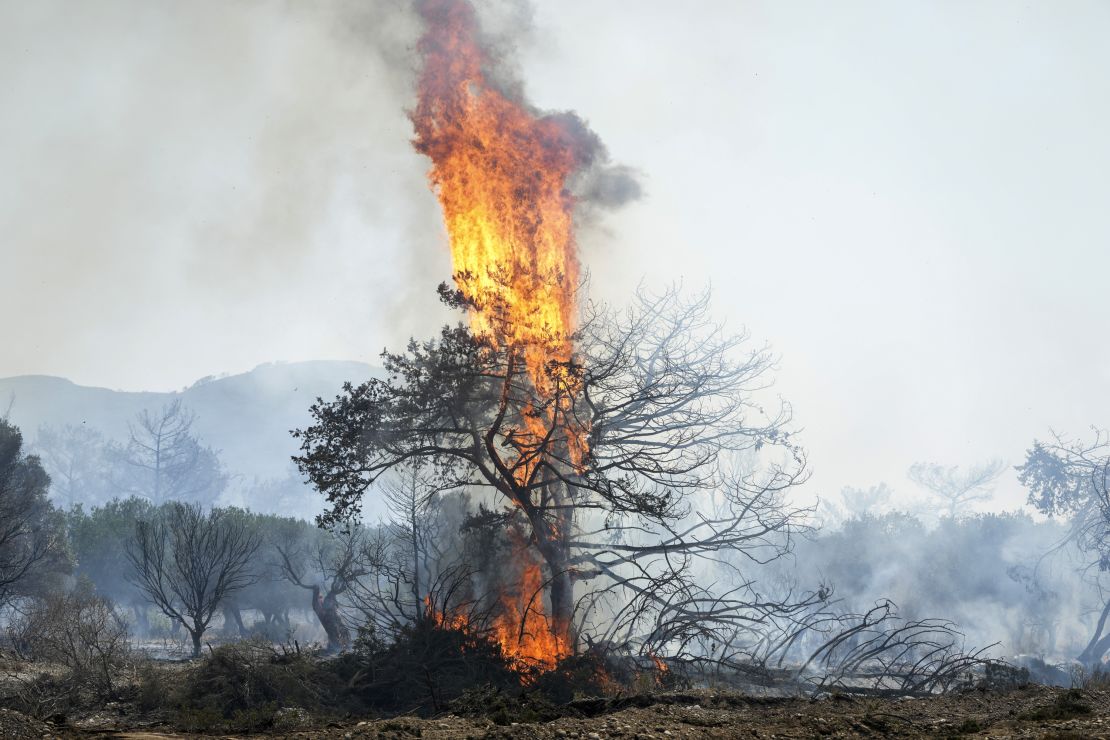
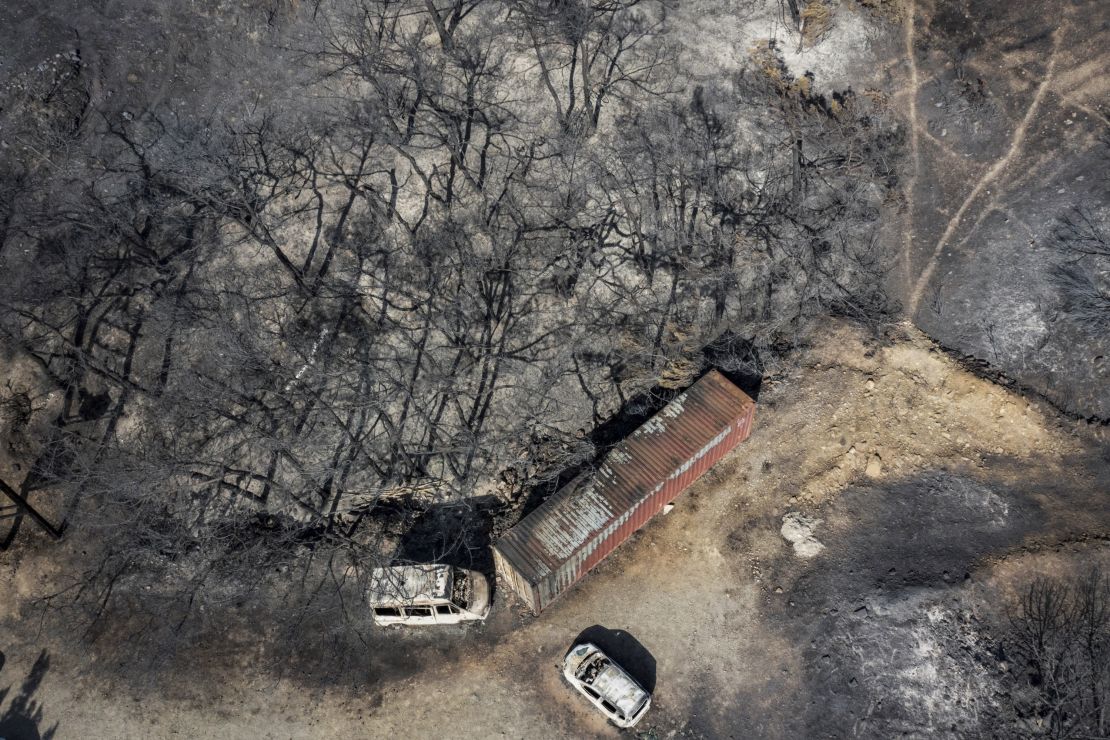
In Turkey, forest wildfires ignited Monday night in the southern Mediterranean province of Antalya, according to Antalya Municipality’s statement.
Antalya’s Mayor Muhittin Bocek said Tuesday, “Our efforts to extinguish the forest fire that broke out last night in Antalya’s Kemer district continue.”
Bocek said 180 hectares of land were affected and the fire was hard to bring under control due to the steepness of the area and the strength of the winds, according to the statement.
A total of 10 homes near the fire were evacuated as a precaution. Six people are being treated at the hospital for smoke inhalation, according to Turkey’s state media Anadolu.
Fires have also broken out in Croatia, south of the city of Dubrovnik, according to the Croatian fire service. Around 130 firefighters and two aircraft have been battling the fires, which are now under control, the fire service said in a statement on Wednesday.
Scientists are clear that the kind of extreme weather, which is causing destruction across swaths of the Mediterranean, will become more frequent and more severe as long as the world continues to burn planet-heating fossil fuels.
Without the human-caused climate crisis, Europe’s searing heat wave, which has baked several southern European countries and primed the land for wildfires, would have been “virtually impossible,” according to a report on Tuesday.
CNN’s Sharon Braithwaite, Radina Gigova, Niamh Kennedy and Vasco Cotovio contributed reporting.




